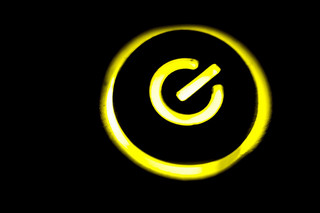 Creative breakthroughs tend to arise when you’re relaxed and being in the moment.
Creative breakthroughs tend to arise when you’re relaxed and being in the moment.
Great ideas often surface when you’re in the shower, just waking up, or on a nature walk.
Mindful communication occurs when you give others your undivided attention.
But in this modern age of technology, real downtime, reflection, and genuine connections are becoming less common.While digital devices come in handy, they also create new challenges and consequences. Information overload makes us less attentive and more impatient.
Need a quick answer? Google it. Getting bored in a meeting? Check your cell phone messages. Waiting in line? Send out a text. Want to seem productive? Update your Facebook page or post a tweet. Stuck in traffic? Listen to a podcast. Feeling out of the loop? Respond to emails or browse the web.
When you’re perpetually plugged in, your attention becomes fragmented. Although you have limitless exposure to stimuli, your brain can process only so much. Raw knowledge supersedes true wisdom. Meaningful conversations get sacrificed for superficial texting and messaging.
Addiction to technology creates an insatiable desire for instant gratification and a strong aversion to the unknown. It can harm your productivity, creativity and ability to concentrate. It can also chip away at your empathetic, listening and conversational skills.
Here are tips to make technology work for you instead of run you:
Disconnect completely.
Don’t use technology to fill in every moment of quiet time. Power off. Shut down. Unplug.
When you go for a run, leave the iPod at home. When you’re driving, turn off the background music. When you’re vacationing, don’t take your laptop to the beach. Engage fully in activities, instead of texting, emailing, tweeting and fidgeting with your device during the parts that don’t interest you.
Resisting the temptation to plug in isn’t easy. During wait times, I used to sit, reflect and embrace the space. Some of my best insights would arise in these quiet moments. But these days, I occupy my wait times by reading books on my Kindle and checking my smartphone. These digital devices are like security blankets. I wonder how I would feel if I no longer had them.
As author Jane Vincent states in Thumb Culture, we are emotionally attached to our cell phone and use it to achieve emotional goals. We experience panic when we are separated from it. We get a thrill and a feeling of “being cool” when we use it.
Getting new information also brings a shot of dopamine, which fuels our online addiction, as author Nicholas Carr explains in The Shallows: What the Internet is Doing to Our Brains. But facing withdrawal symptoms are part of overcoming any addiction. Be with the discomfort and allow it to pass.
Plus, you don’t have to unplug indefinitely to reap benefits. It could just be for an hour, an afternoon, a day or a weekend.
Log on and tune in with purpose.
Set a specific intent before you power up your device. Refrain from surfing the web and checking your emails on impulse. Decide what you’re really looking for before you log on. Set time aside to read and process your emails. Avoid sporadic checking that takes you away from your real work. Don’t react to every ping you hear.
Keep a log.
Record how much time you spend browsing websites, emailing, texting, tweeting and checking Facebook. Do this for a week to assess the level of your addiction to technology. Then brainstorm ways to make better use of your time.
Meet your friends in person. Pursue a challenging hobby that helps you grow and adds value to your life. Start a long-term project that you’ve been ignoring. Block out external stimuli and tune in to your own thoughts.
* * *
By getting unplugged, you learn how to use technology so it works for you instead of runs you. Overcoming your online addiction enables you to savor quiet time, filter and process stimuli, and create and sustain real connections.
# # #
Photo by: winterofdiscontent

